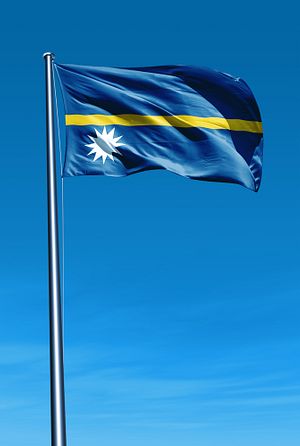As previously reported in The Diplomat, Australia has been the target of widespread criticism after signing agreements with several states, including Papua New Guinea and Cambodia, to intern migrants seeking asylum in Australia. The primary objective of these agreements is that migrants who are granted asylum will be settled in the country in which they are being hosted. The South Pacific island state of Nauru is another destination where migrants are placed while their applications are processed. The tiny island state (population 9,540) has found itself at the center of international attention following the reportedly inhumane treatment of detained asylum seekers, especially women and children. These are interned at the Regional Processing Center (RPC), located in the inhospitable interior of the country.
While there has been extensive scrutiny and criticism from human rights organizations and the Australian political opposition, there have been few official inquiries into the treatment of refugees on Nauru. However, on August 31 an independent official Australian Senate commission released a scathing report tellingly titled “Taking responsibility: conditions and circumstances at Australia’s Regional Processing Center in Nauru.” According to this report, there were 637 refugees at the RPC in July 2015, including 86 children. The commission confirmed that “the RPC in Nauru is not a safe, adequate or appropriate environment for asylum seekers, particularly women and children. The committee received evidence of abuse, traumatization and mental illness.” Unsurprisingly, Australian Immigration Minister Peter Dutton dismissed the findings of the report as “unfounded and… a witch hunt by the political opposition.” Former Prime Minister Tony Abbott has on several previous occasions stated that crimes committed at the RPC are a matter for the Nauruan government to handle.
That might be easier said than done. Nauru doesn’t have the best reputation when it comes to good governance and investments. After independence in 1968, Nauru experienced several decades of prosperity when exports of the island’s main natural resource, phosphate, made its inhabitants among the wealthiest in the world. This allowed the Nauruan government to abolish taxes and give its population monthly stipends, essentially removing any incentive for Nauruans to seek employment, start businesses, or otherwise contribute to the economy of the country. By the late 1990s, the island’s phosphate reserves had essentially run out, sinking the country into economic turmoil. In the process, 80 percent of the country has been rendered totally uninhabitable and inarable by mining, removing any prospects of agriculture and, to a large degree, tourism.
Although the country had created a sovereign wealth fund based on the income from phosphate exports, this was squandered through corruption and a series of bad investments (including commissioning a national airline consisting of five Boeing 737s to service an island of less than 10,000 inhabitants, and investing $2 million into a West End musical, which has been generally considered the biggest disaster in London theater history). Although reliable statistics are notoriously hard to come by, Nauru had a reported 23 percent unemployment rate in 2011 as a result of its disastrous economic policies. Furthermore, due to the removal of agricultural land and the selling of fishery rights in its own waters, Nauru now has the dubious honor of having the second-most obese population on the planet (after American Samoa), living mainly off imported prefabricated food from Australia.
It is therefore perhaps not surprising that the Nauruan government was excited at the prospect of a new source of revenue and employment when Australia offered to set up the first RCP in 2001-2007 and the second, currently operational facility in 2012. While it is unknown how many Nauruans are currently employed at the RCP today, the fact that it can accommodate 1,200 people suggests that it is a significant employer for the local population. However, Tony Abbott’s replacement by Malcolm Turnbull at the helm of the Liberal Party in Australia may complicate things. While this might not change Australia’s asylum practices overnight, it is a reminder that Australian politics are notoriously unpredictable. There is great pressure on wealthy states to welcome migrants fleeing from war and poverty. Nauru is currently treating migrants as a disposable commodity; it would do well to remember its own painful experiences from its overreliance on phosphate production.

































